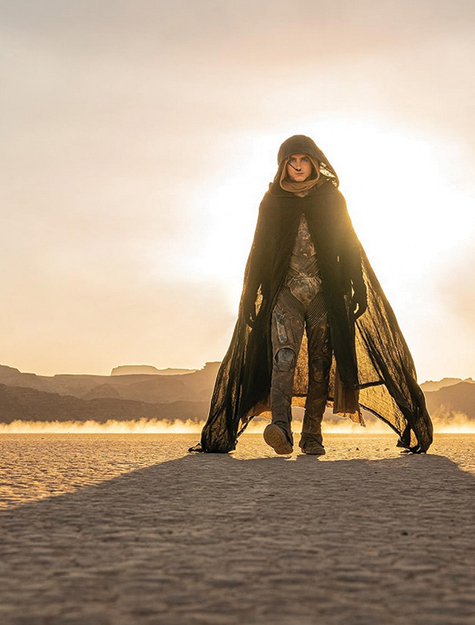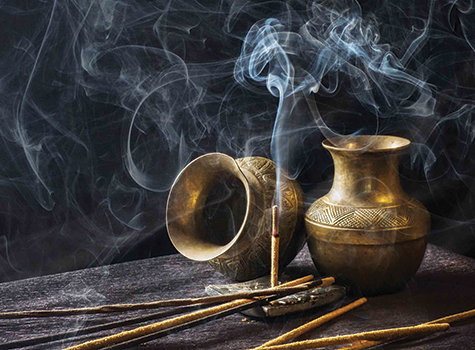 Another awards season has come and gone, with favorites (and some welcome surprises) either nabbing all the trophies, or denied that slim chance of one day showing off “award winning actor/director/writer†touted in front of their name for future prestige and clout to promote upcoming projects.
Another awards season has come and gone, with favorites (and some welcome surprises) either nabbing all the trophies, or denied that slim chance of one day showing off “award winning actor/director/writer†touted in front of their name for future prestige and clout to promote upcoming projects.
This particular season, however, was also a bittersweet one as such nights of glamour and glitz commenced on the bootheels of a combined multi-month writers’ and actors’ strike. Some films and series were delayed because of it, due to union rules specifically stating members could not publicly promote their work while on the picket lines. Others released with very little fanfare and were met with mixed results.
I think these strikes are only a part of a complex tapestry which has been gradually unraveling over the past few years. For much of the past decade or so, popularity and prestige have become separate entities when it comes to Hollywood. The most profitable blockbuster films have almost exclusively been franchises, sequels, remakes, and adaptations, while Best Picture winners are generally smaller niche films, like CODA, Moonlight, and Everything, Everywhere, All at Once.
The Golden Globes in 2024 at least finally acknowledged this great divide with a shiny new award entitled “Cinematic and Box Office Achievement†which was exclusively made up of films with an average budget of $150 million or more. The winner, ironically, was Barbie which was also nominated for “Best Motion Picture – Musical or Comedy†but lost that trophy to Poor Things, another uniquely niche project. Both films shared great lead actress performances, unique set design, costuming, and cinematography, as well as intelligent scripts focused on female empowerment. A major difference between them is that Barbie released in the summer right before the strikes began, and Poor Things was delayed (twice) and finally released in the winter soon after the strikes ended.
Still… it’s hard to deny that in recent memory, two major mindsets about entertainment and how it’s consumed have shifted. First, the old standby of using franchises for guaranteed profit is finally showing some wear and tear, as the excitement once held for comic book and science fiction films (along with tie-in streaming series based on said properties) has waned due to terrible writing and reliance on expensive special effects. The second, is that due to the desire from certain entertainment companies to oversaturate the market with these franchises, the original intellectual property loses its luster and, in most cases, is met with poor reception due to the aforementioned bad writing and effects in order to keep up with such an accelerated release schedule.
One perpetuates the other in a never-ending cycle, and the fans have finally become so fed up that they’ve answered in the form of both horrible box office returns and low stream counts. Instead, in the past 18 months we’ve seen more original and daring films such as Barbie, Oppenheimer, and more recently Dune: Part Two dominating movie theatre sales while brilliant series concepts from the likes of The Bear, Ted Lasso, Stranger Things, and Succession (to name a few) have delighted our minds and hearts in equal measure.
Major Hollywood studios have finally reached a major fork in the road when it comes to their business models. Since the near beginning of the 21st century, we’ve all become witness to an age of the cinematic universe and the multi-sequel factory. If you look at some of the top grossing films of 2019 (the last big year before the pandemic) there are two Marvel films, Frozen 2, Toy Story 4, and Star Wars: Episode IX. Yup… all Disney franchises. Fast forward five years and Disney is now struggling to keep up. Last year was dominated by “Barbenheimerâ€, and so far in 2024 the most talked about films are not from cinematic universes. Heck, even Dune was originally just an egregious 60’s sci-fi book that despite three previous adaptations (the unfinished 70’s version by Alexandro Jodorowsky, the 80’s David Lynch film, and the 90’s Sy-Fi miniseries) were all deemed unworthy to capture the true essence of what Frank Herbert portrayed in his prose.
It took Denis Villeneuve and his unique filmmaking style to finally give whole new audience a chance to enjoy this complex narrative involving intertwining political and power shifts due to a cultural reliance to psychedelic sand.
Truth be told, this once dominant form of cinematic pop culture has finally hit a brick wall. This by no means says that comic book stories can’t work. The Loki series and Guardians of the Galaxy, Volume 3 are outliers to most of Disney’s other output due to their exceptional writing, performances, and direction. Spider-Man has seen a popularity resurgence due to a dual effort from the Tom Holland films and animated multiverse films. Audiences also are now more willing to accept a darker, edgier side of comics with projects such as Logan, Deadpool, The Boys, Invincible, Joker and The Dark Knight Trilogy.
Times have changed, and for Hollywood to survive it needs to rethink its business acumen. Find a happy medium involving both big-budget extravaganzas and small independent, story-driven, potential award-worthy films. Heck the last blockbuster Best Picture winner was 2003’s The Lord of the Rings: The Return of the King which in itself was an anomaly.
Don’t expect something that was good 10-15 years ago to hold up. Don’t expect actors, writers, and producers to crank out good content at break-neck speeds for a fraction of the compensation they deserve. Both the strikes and lack of ticket sales prove that we’re all channeling Network’s Howard Beale and exclaimed, “I’m mad as hell and I’m not going to take this anymore!â€
A new age is dawning in Hollywood cinema… and I am excited to see where it will go by year’s end.
Jennifer Allen works at Saathee and is also a Podcaster, Blogger, Photographer, Graphic Artist, Gamer, Martial Arts Practitioner, and an all around Pop Culture Geek. You can reach her at [email protected].



